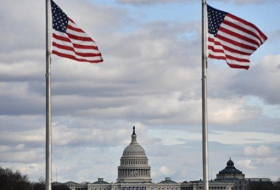Amid heightened global tensions, it is reasonable to worry that the international order is collapsing, and that other priorities have displaced the pursuit of financial stability as a global public good. Old strategies for winning a zero-sum game are re-emerging, with ominous echoes of the twentieth century.
Since global financial stability ought to be considered a public good, many international institutions devote themselves to establishing the conditions to sustain it. Geopolitical conflict, however, often brings a change in thinking: suddenly, instability becomes a useful tool for protecting one’s own interests in a zero-sum global competition. In our current era of trade wars, cross-border supply chains, and restrictions on access to key technologies – call it “geotechnopolitics” – a newer version of this old dynamic is emerging. If history is any guide, financial war is around the corner.
In the twentieth century, both world wars were preceded by the formation of rival blocs and an increase in targeted financial attacks. As diplomatic tensions escalated, each side tried to undermine the other’s capacities through a financial war of attrition. Hence, financial mobilization preceded military mobilization in the run-up to 1914.
For example, during the Second Moroccan Crisis of 1911, France responded to Germany’s deployment of a gunboat to the coastal city of Agadir by orchestrating a rapid selloff of German securities, triggering financial panic in Germany. At the same time, Austria-Hungary, whose businesses wanted to tap the French capital market, abandoned its German ally and lined up with Paris. As a result, Germany felt less secure about Austrian support and more determined to invent economic issues that would force the Habsburg Empire back to its side.
The path to war in 1939 was even more conspicuously marked by financial attacks. The Great Depression had shown how panics and bank collapses could demoralize and destroy entire countries, and strategists had an obvious weapon at their disposal. Since collapses in bond prices or currency outflows would force governments to adopt austerity as a fiscal countermeasure, creating a financial crisis was an effective way to reduce a rival’s spending on defense (always the largest budget item).
Thus, from 1936, German economic planners repeatedly used an Amsterdam bank to launch attacks on the French franc, ultimately succeeding in constraining France’s military budget. This financial mobilization for war set the trap that closed on France when Nazi Germany invaded in 1940.
Amid the heightened global tensions following the COVID-19 pandemic and Russia’s invasion of Ukraine in 2022, it is reasonable to worry that the international order is collapsing, and that other priorities have displaced the pursuit of financial stability as a global public good. Old strategies for winning a zero-sum game are re-emerging, and financial warfare has returned with a vengeance in the form of sanctions.
Indeed, it appears to be only a matter of time before hostile financial speculation joins the hybrid-warfare arsenal, alongside cyberattacks and mass disinformation. A tighter interest-rate environment has made bond-market turmoil more likely. Conditions are ripe for financial attacks.
The vulnerabilities are evident worldwide. The low-interest-rate regime of the past 15 years has fueled construction booms around the world; but COVID-19 changed living and working patterns, driving an indefinite shift in expectations about how buildings and related infrastructure will be used (if they are used at all). With the decline of office work in major city centers, commercial real estate has been left especially vulnerable. We are already witnessing the spectacular collapse of leading real-estate developers such as Evergrande in China and Signa in Austria and Central Europe.
Turmoil is also hitting stock markets. The Russian MOEX Index fell by more than 50% in the year after October 2021; though it started to rally in October 2022, it is now faltering again.
Similarly, China’s Shanghai Composite Index fell by almost one-third from September 2021 to the end of January 2024. Since then, Chinese authorities have been intervening with increasingly sweeping measures to curb speculation and halt the collapse. The situation in Hong Kong – the key financial intermediary between China and the world – looks even worse.
One could interpret these market signals as a financial verdict against Russia and China. After all, the geopolitical West looks fine: the Japanese Nikkei, along with European and US stock markets, are running hot, and commercial real-estate woes have not led to any form of generalized panic. Moreover, Western institutions increasingly pride themselves on ensuring financial and economic resilience.
It is hard to think of any method that geopolitical rivals could deploy to trigger a collapse in the wider West. There is no obvious equivalent of the Amsterdam bank of the 1930s dumping the French franc in a precisely timed attack designed to soften up the enemy before an invasion.
All that remains is rhetoric. Like so much else, finance follows constructed narratives that can change abruptly, provoking a general revaluation. The most fascinating – and revealing – part of Russian President Vladimir Putin’s bizarre interview with the right-wing American pundit Tucker Carlson this month was not his raving tour through a millennium of Russian history; it was his obvious attempt to rewrite the financial market narrative.
Putin started by observing that, “The dollar is the cornerstone of United States’ power.” He then sketched a scenario in which the world would turn on the dollar and emasculate an enfeebled America: “But they won’t stop printing. What does the debt of $33 trillion tell us about? It is about the issuance.”
Make no mistake, this was a call for an attack on America’s dominant financial position. True, it is easy to write off Putin’s bluster. He did something similar with his previous threats of nuclear war, and the potency of that brinkmanship waned quickly.
With global financial vulnerabilities sure to continue mounting, however, hostilities in this theater of hybrid war seem much more plausible than the use of nuclear weapons. America’s rivals, we can be sure, will increasingly rely on narrative power to pry open cracks in major Western markets.
Harold James is Professor of History and International Affairs at Princeton University. A specialist on German economic history and on globalization, he is a co-author of The Euro and The Battle of Ideas, and the author of The Creation and Destruction of Value: The Globalization Cycle, Krupp: A History of the Legendary German Firm, Making the European Monetary Union, and The War of Words.
More about:
















































